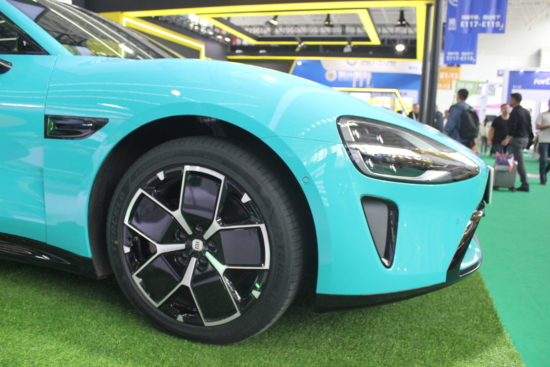EV tyre sector leading the race to recovery: Comparing recent developments in the Chinese and European tyre markets
 Electric cars are now more visible than ever, just as much on the streets of China’s metropolises like Beijing and Shanghai as well as regional cities like Dongying in Shandong province. Here the Xiaomi Mi, made by the famous mobile phone manufacturer, is pictured fitted with Roadboss tyres made by the Huasheng Group (Photo: Chris Anthony/Tyre Industry Publications Ltd)
Electric cars are now more visible than ever, just as much on the streets of China’s metropolises like Beijing and Shanghai as well as regional cities like Dongying in Shandong province. Here the Xiaomi Mi, made by the famous mobile phone manufacturer, is pictured fitted with Roadboss tyres made by the Huasheng Group (Photo: Chris Anthony/Tyre Industry Publications Ltd)
During our recent visit to China, on the sidelines of the GRTAE expo hosted in what can only be described as the tyre capital of the People’s Republic, Tyres & Accessories enjoyed a panel discussion with Car and Tire editor, Alex Shi. Formerly an executive within the tyre industry – including time with Goodyear – Car and Tires focuses on business-to-business communications and is particularly strong when it comes to tyre testing and in the social media space. Indeed, they are something of a force online, with some 300,000 followers on WeChat, which is a bit like WhatsApp is here in the West. True to form, not only was our discussion hosted in the main meeting room at GRTAE, it was also video recorded and streamed live to a potential of hundreds of thousands of Chinese-language followers in the East. Beginning with the current state of the respective Chinese and European tyre markets in light of recent macro-economic market trends, our discussion then moved onto the similarities and differences between the European and Chinese online tyre sectors (see part two).





Comments